Emilio Pucci A/W 2014
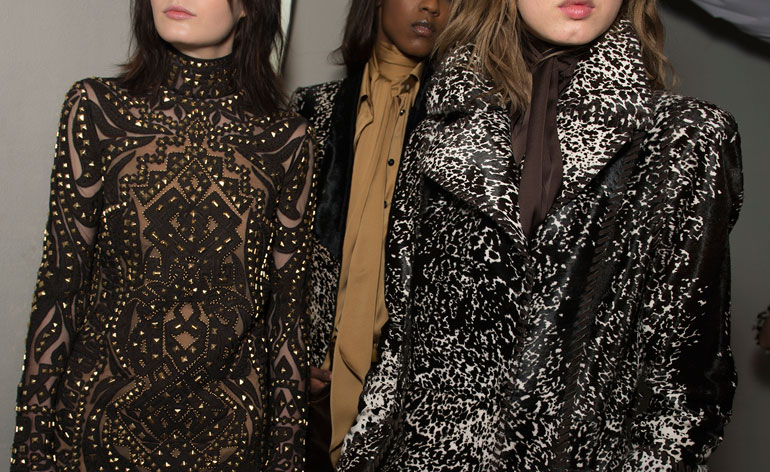
Peter Dundas' 'Call of the Wild' Pucci collection could have easily signified an animal print stampede for his gilded runway. In actuality, though, the Pucci girl roared with a much more sophisticated sensibility this season, playing off the noble roots of the Florentine brand, but wrapping it up in a still smoking hot package. The fil rouge in Dundas' work for this venerable Italian house is the way in which he reinterprets classic notions of print. Though he always plays with printed motifs - in this case a historic motif called 'Orchidea' - Dundas' real passion is put forth in the intricate knit patterns, the elaborate embroideries and the mouth-watering fur intarsias, all of which are a new way, his way in fact, of expressing the classic Pucci graphics. This season the motifs took on a Navajo meets Inuit tribal quality, a cross between the two cultures this half American, half Norwegian designer feels a natural affinity for. The results, especially when mixed with spotty appaloosa pony skin, yards of metal studding and racy lacy high stiletto boots, was graphic, punchy and yes, wild, but in a savage chic sort of way.
Photography: Jason Lloyd-Evans
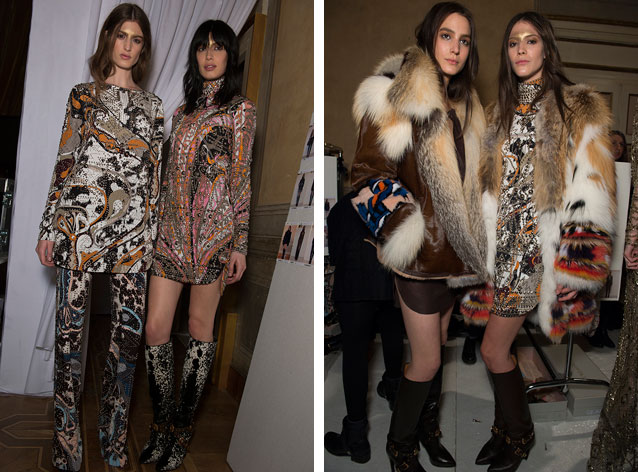
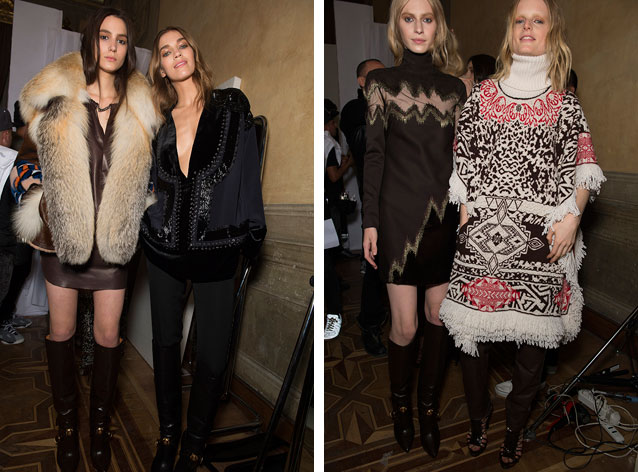
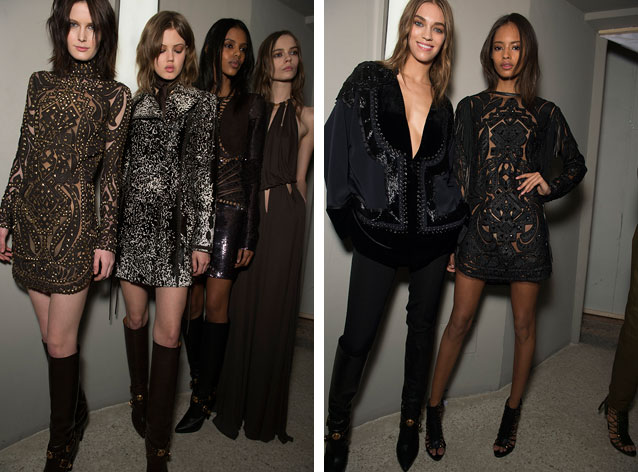
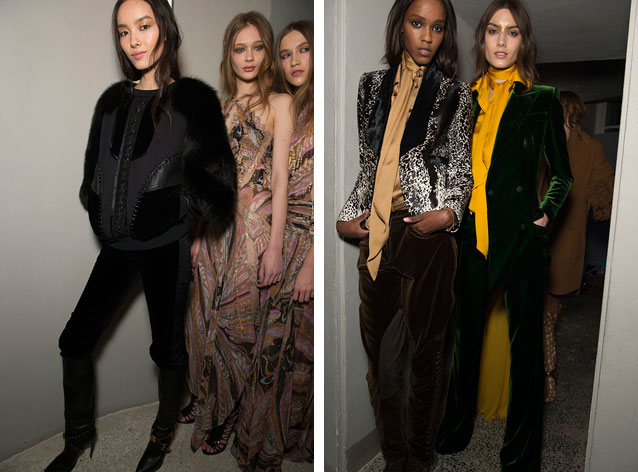
Wallpaper* Newsletter
Receive our daily digest of inspiration, escapism and design stories from around the world direct to your inbox.
JJ Martin
-
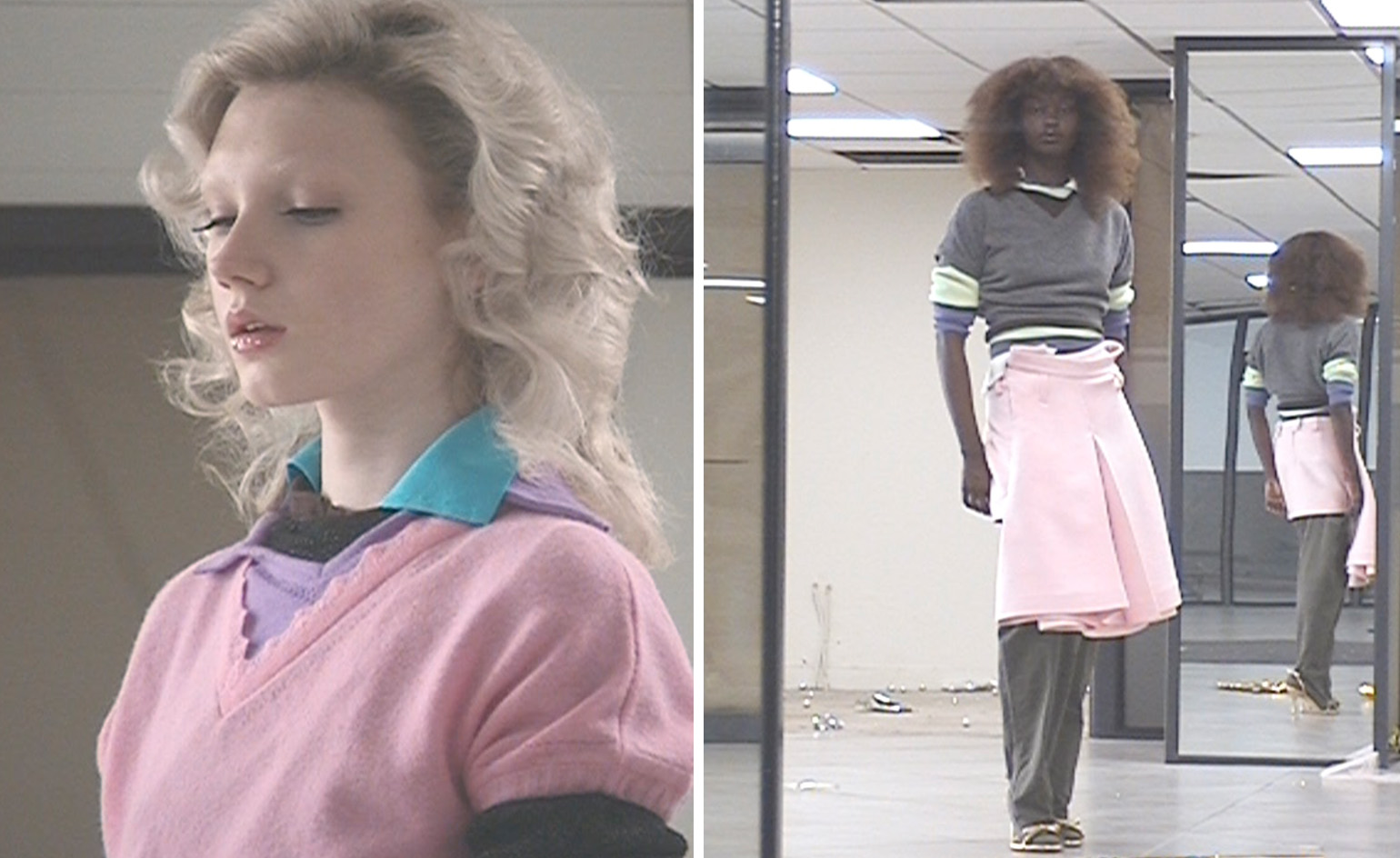 All-In is the Paris-based label making full-force fashion for main character dressing
All-In is the Paris-based label making full-force fashion for main character dressingPart of our monthly Uprising series, Wallpaper* meets Benjamin Barron and Bror August Vestbø of All-In, the LVMH Prize-nominated label which bases its collections on a riotous cast of characters – real and imagined
By Orla Brennan
-
 Maserati joins forces with Giorgetti for a turbo-charged relationship
Maserati joins forces with Giorgetti for a turbo-charged relationshipAnnouncing their marriage during Milan Design Week, the brands unveiled a collection, a car and a long term commitment
By Hugo Macdonald
-
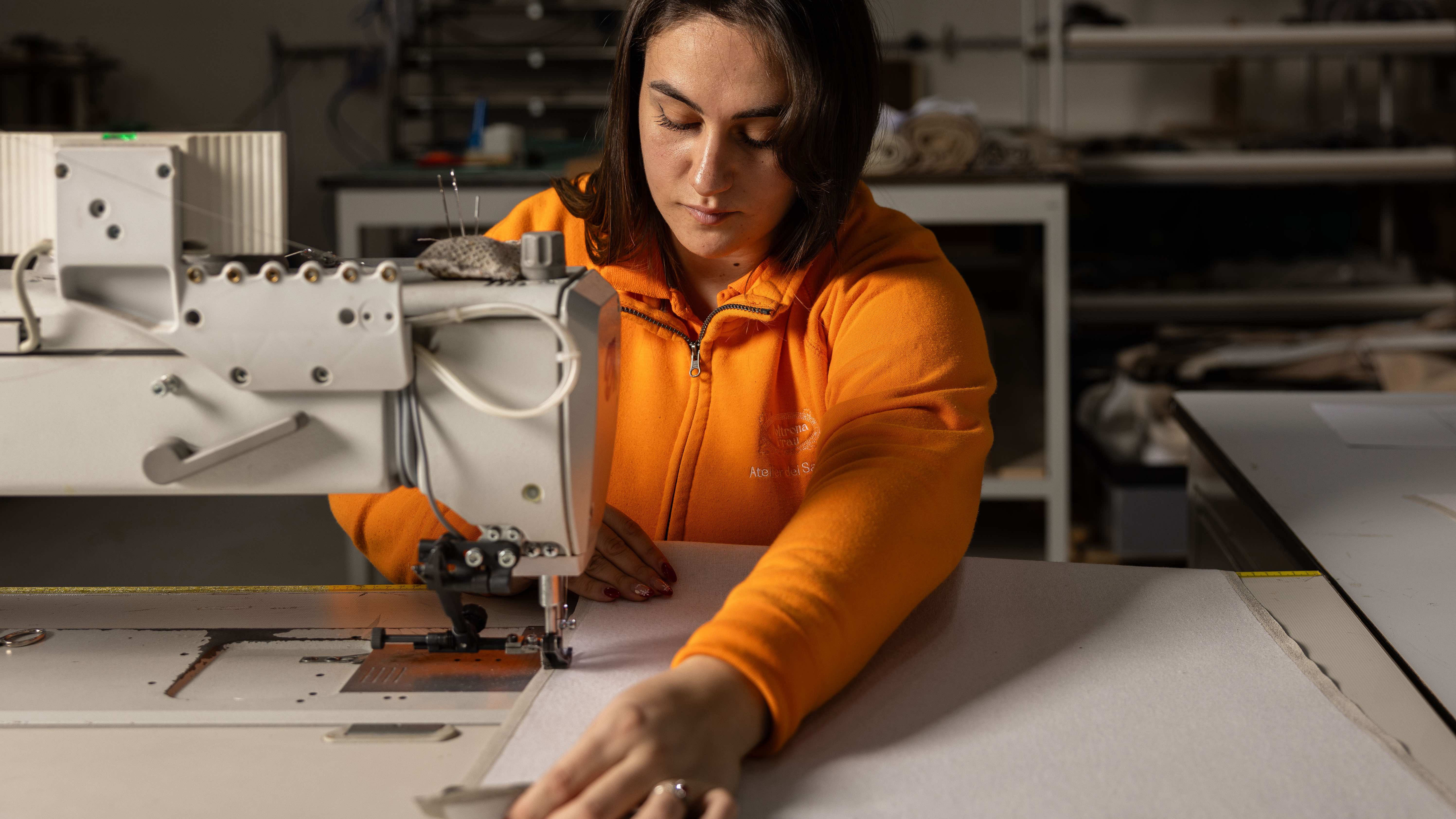 Through an innovative new training program, Poltrona Frau aims to safeguard Italian craft
Through an innovative new training program, Poltrona Frau aims to safeguard Italian craftThe heritage furniture manufacturer is training a new generation of leather artisans
By Cristina Kiran Piotti